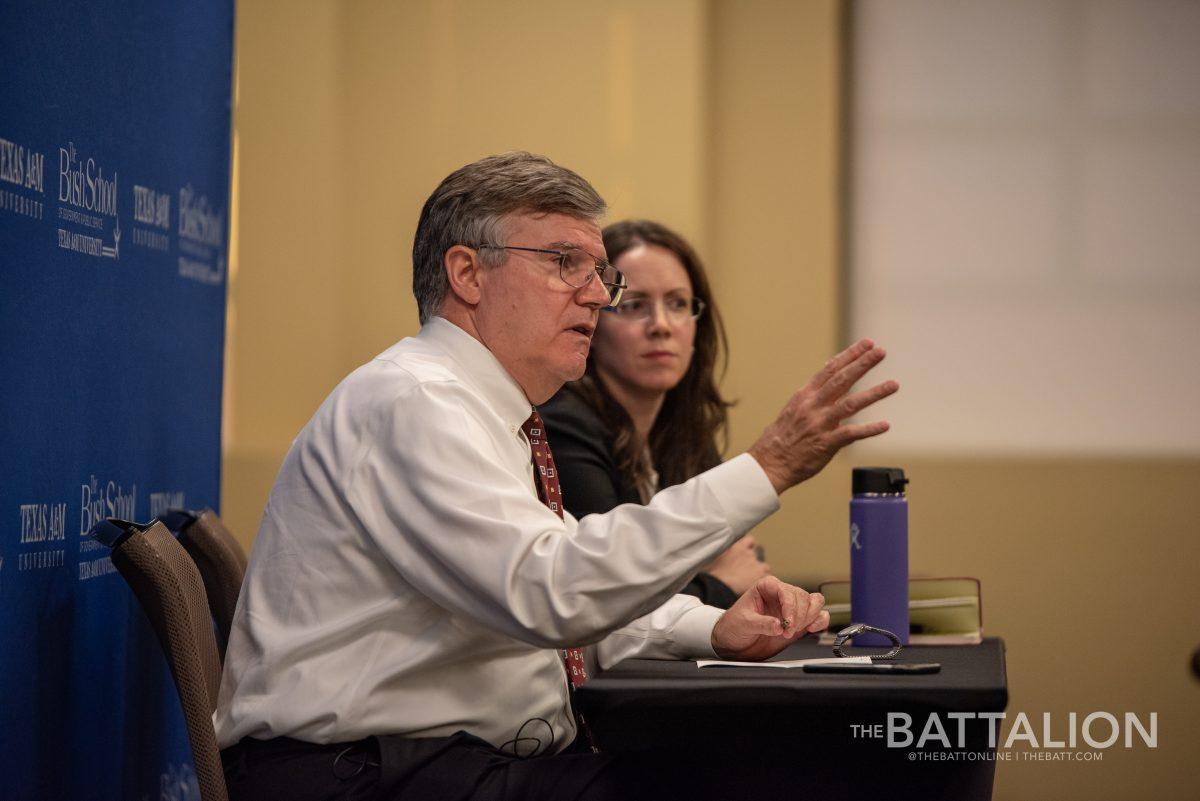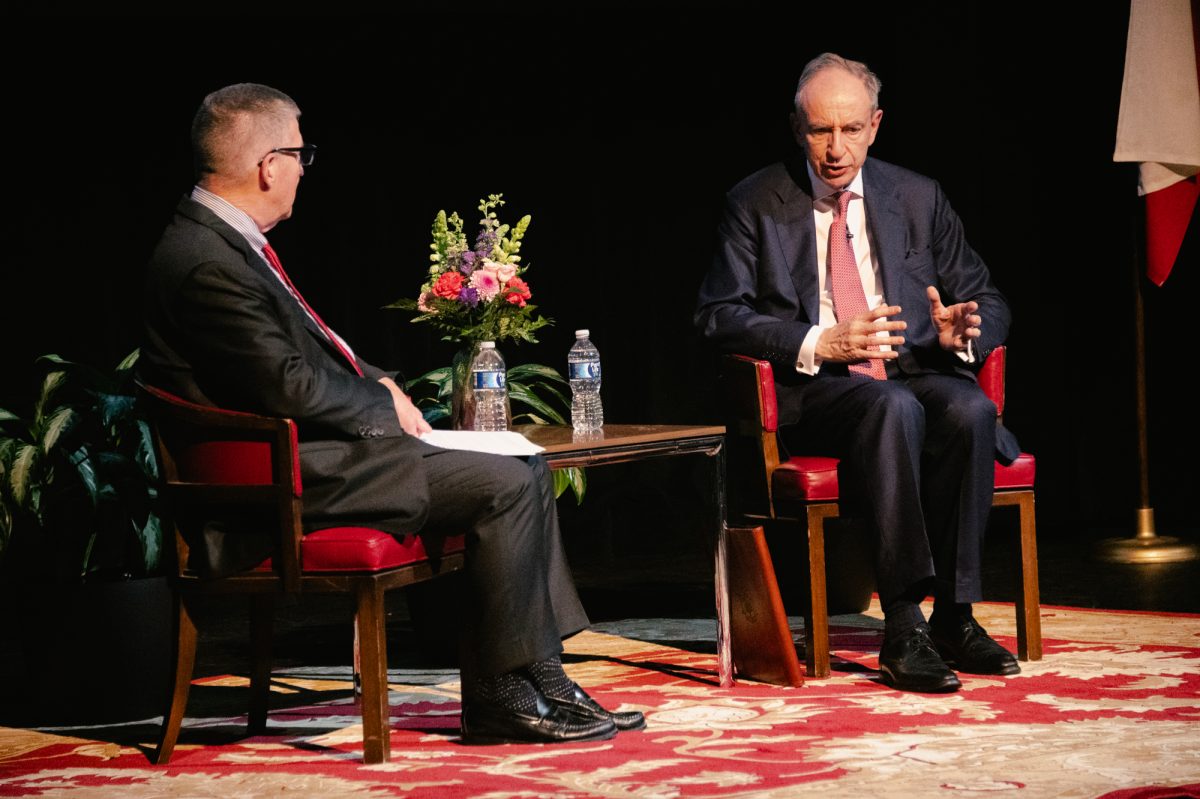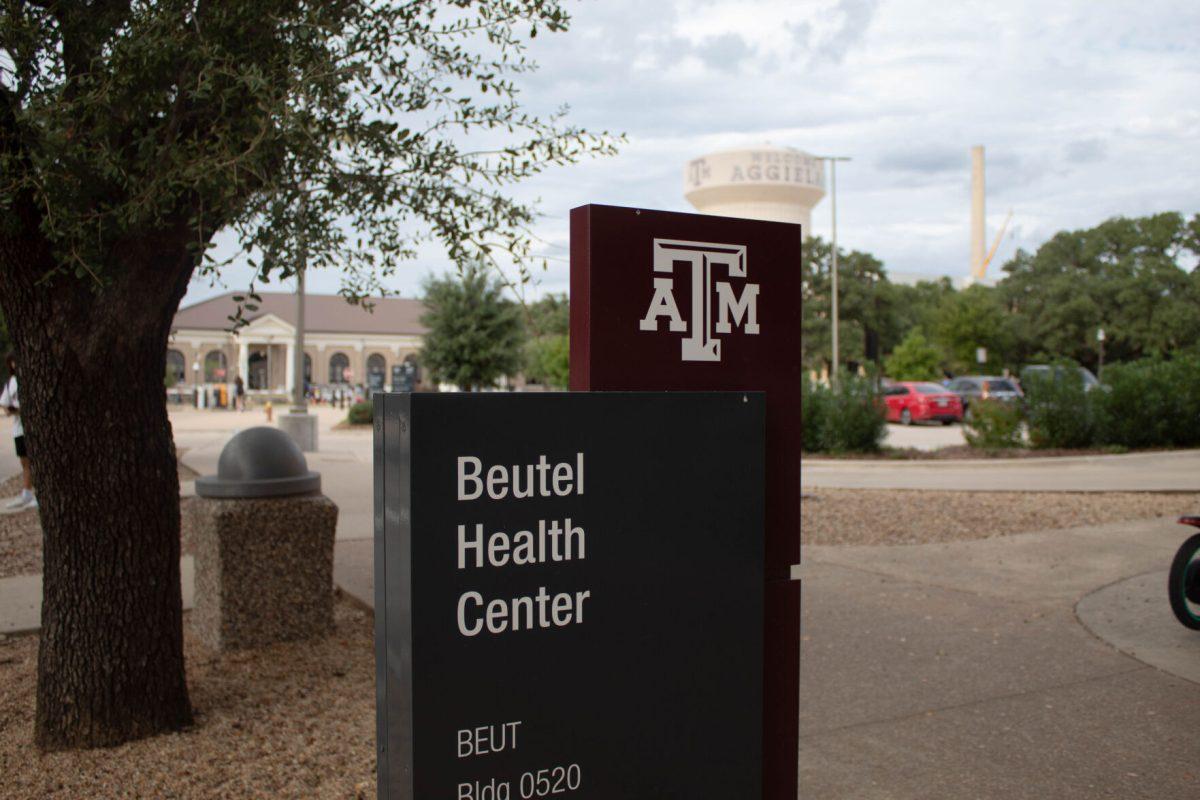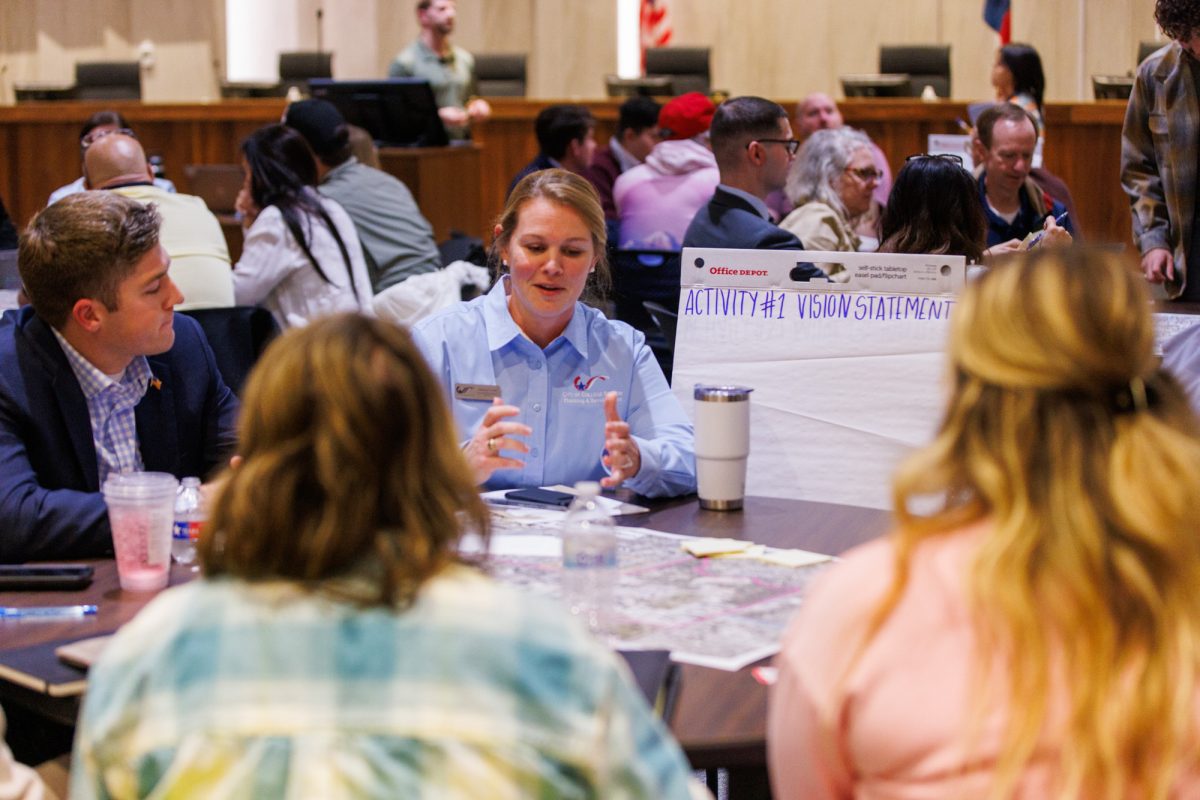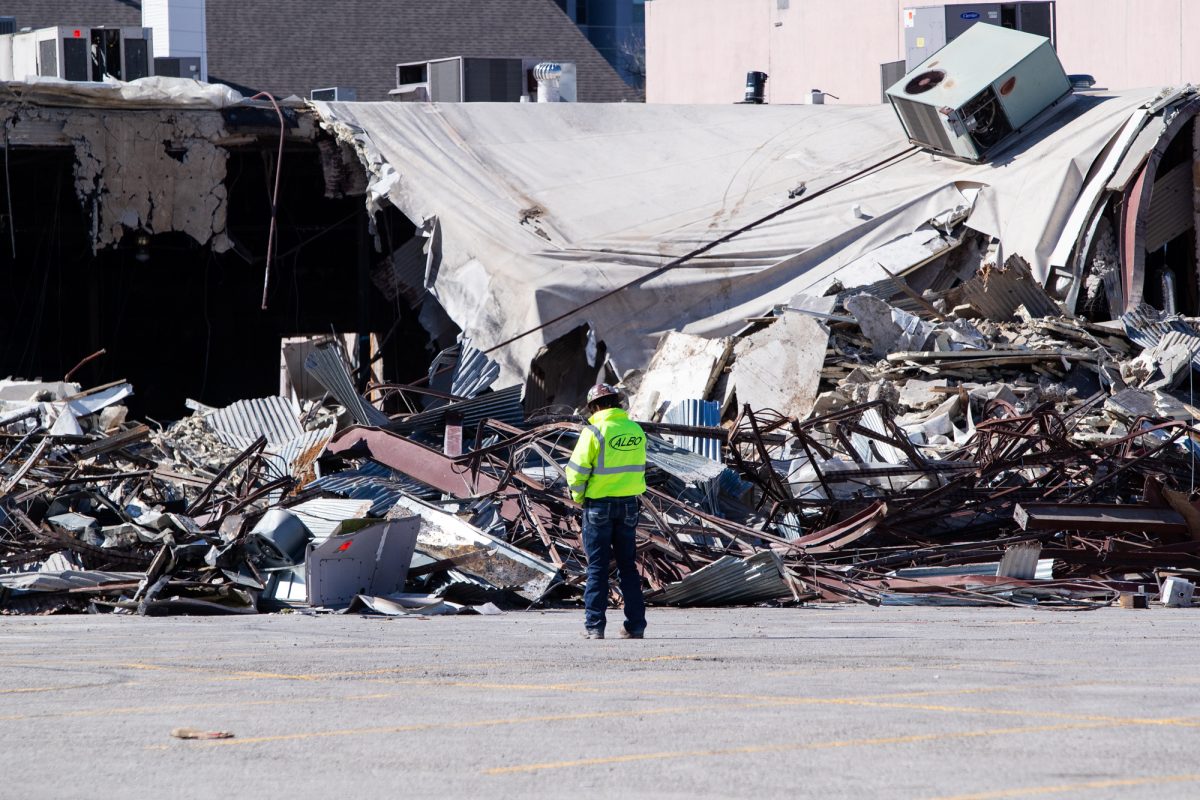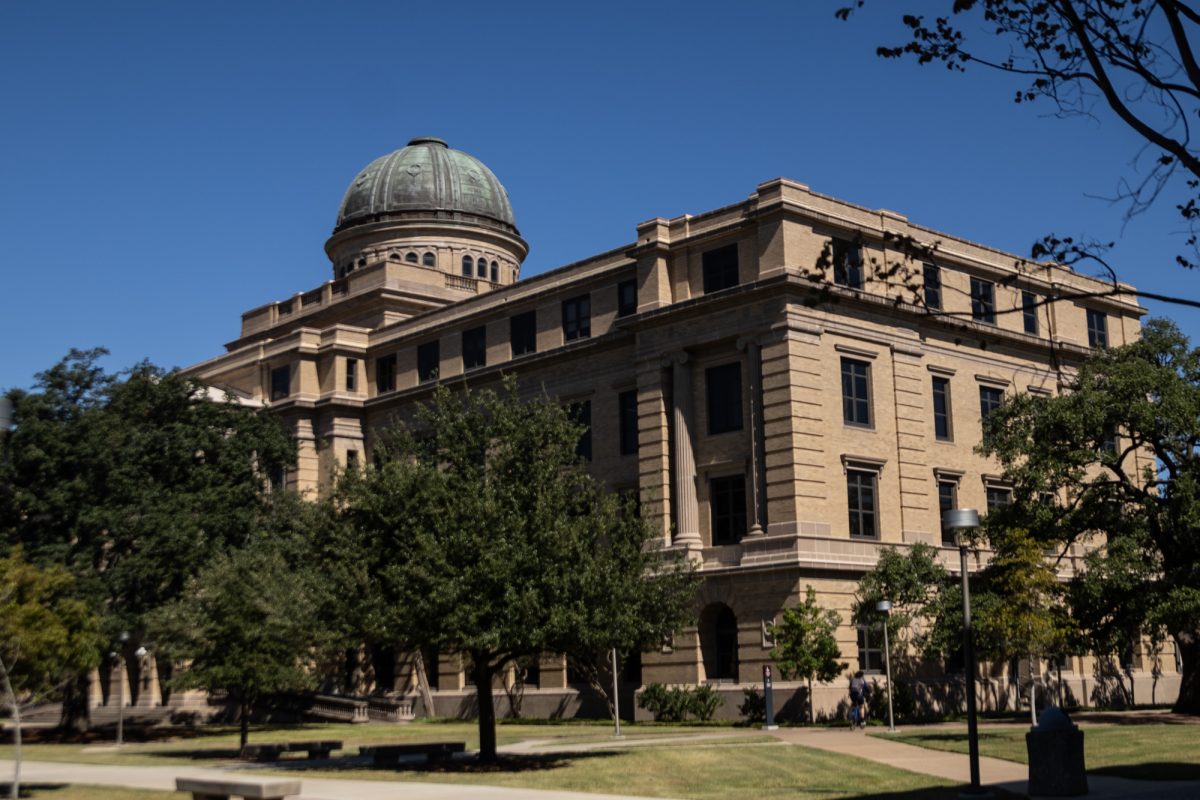In the wake of prominent Saudi journalist Jamal Khashoggi’s death, the Bush School hosted the latest installment of the “What’s Next” series in the MSC to discuss the potential implications of the murder for US-Saudi relations. The event featured Bush School Middle East expert faculty members Gregory Gause and Erin Snider, who shared their analyses with a curious audience.
On Oct. 2, Khashoggi, who had previously been outspoken against corruption in the Saudi government, entered the Saudi consulate in Istanbul, Turkey and never emerged. After originally denying any knowledge of the event, the Saudi government now claims “rouge agents” are responsible for his death. This answer did not satisfy many international leaders, including members of Congress and the White House, and various activists have called for sanctions against Saudi Arabia.
Calling the topic “a somber one,” Gause discussed his suspicion that Khashoggi’s death was orchestrated by the Crown Prince of Saudi Arabia, Mohammed bin Salman, probably for personal revenge. He also covered the implications the Saudi government’s cover-up could have on Turkish-Saudi relations and Saudi-US relations, saying that in the long run, not much will change.
Statistics sophomore Sam Golden went to the panel to educate himself on the Khashoggi case after hearing about it on the news.
“I found all the stuff about the arms deals interesting because I didn’t realize how hard it was to break. Doing it as a slap on the wrist wouldn’t hurt their citizens as much as it would hurt ours,” Golden said.
Snider focused on the potential economic fallout in the Middle East, including the investment conference hosted in Saudi Arabia last week that many high profile business executives pulled out of in protest.
First year international affairs graduate student Lisa Smith attended out of a curiosity to know how America would respond to Khashoggi’s death.
“My biggest takeaway was the breakdown Dr. Gause did about the oil and arms trades,” Smith said. “They are two very important areas for us to understand at this point because we are intertwined in a close relationship with Saudi Arabia in these areas.”
Both professors focused heavily on the potential actions the US government could take to express their disapproval and the potential fallout, specifically for the economy. The crucial issues involved the US’ $14 billion arms trade deal with Saudi Arabia, which is the number one supplier of oil in the world. Gause and Snider agree that this geopolitical interconnectedness could be used as leverage by both countries but that there are ways around sanctions in both cases.
Bush School Director of Communications and External Relations Susan Robertson said she hopes the “What’s Next” series makes news accessible.
“The ‘What’s Next’ series was President Young’s idea to bring current events to the community,” Robertson said. “That’s why they are held in the center of campus and not way out at the Bush School.”
A video of the panel discussion can be found on the Bush School’s Facebook page.
Discussing the implications of Khashoggi’s death
October 29, 2018
Photo by Cassie Stricker
DSC_8523.jpg
0
Donate to The Battalion
$810
$3500
Contributed
Our Goal
Your donation will support the student journalists of Texas A&M University - College Station. Your contribution will allow us to purchase equipment and cover our annual website hosting costs, in addition to paying freelance staffers for their work, travel costs for coverage and more!
More to Discover




